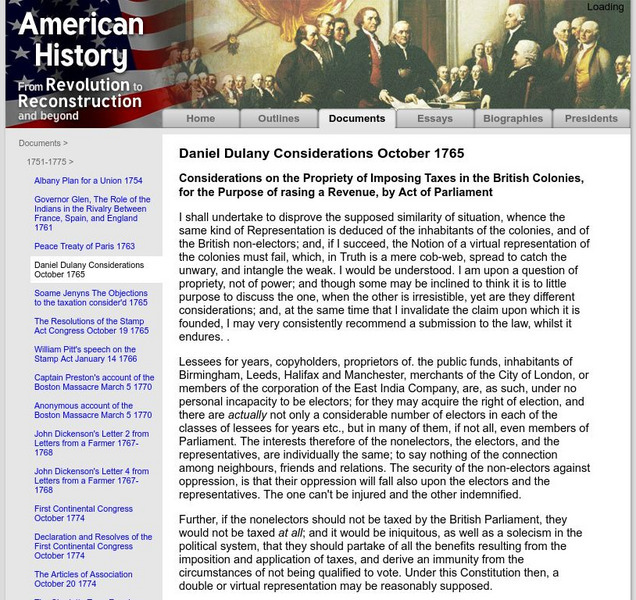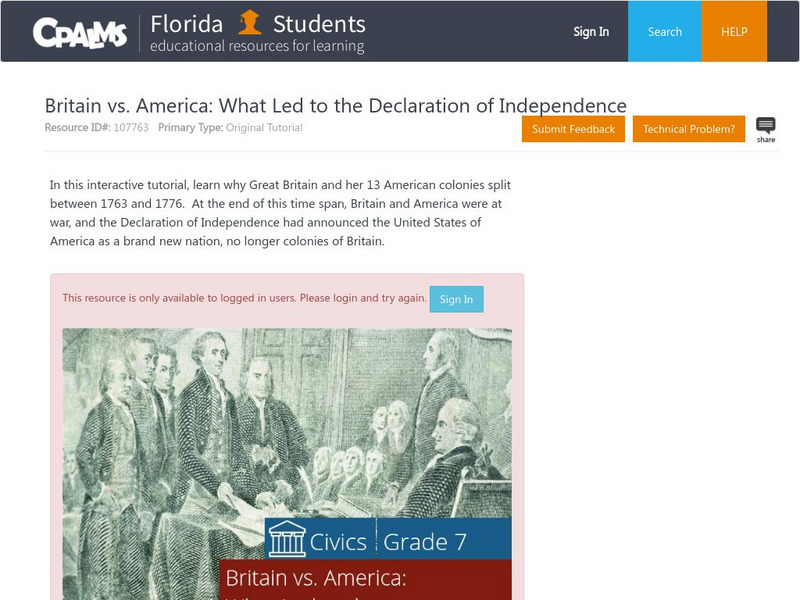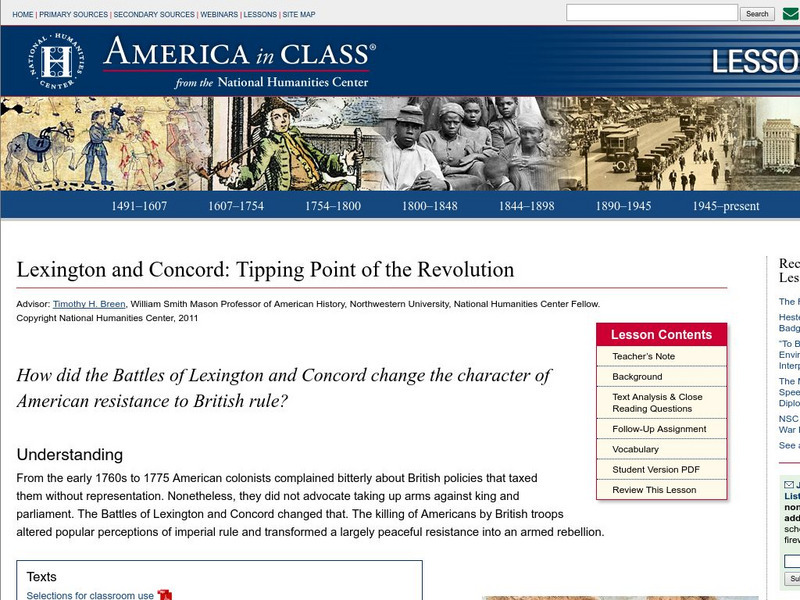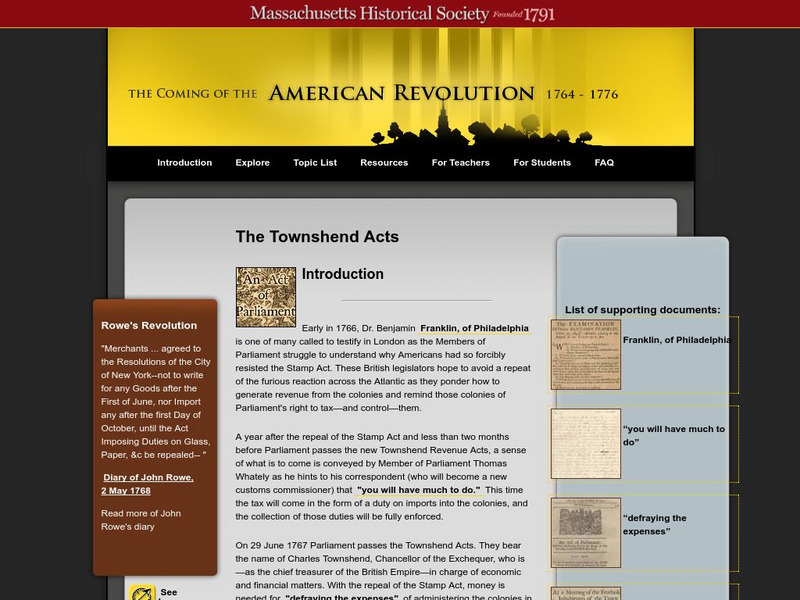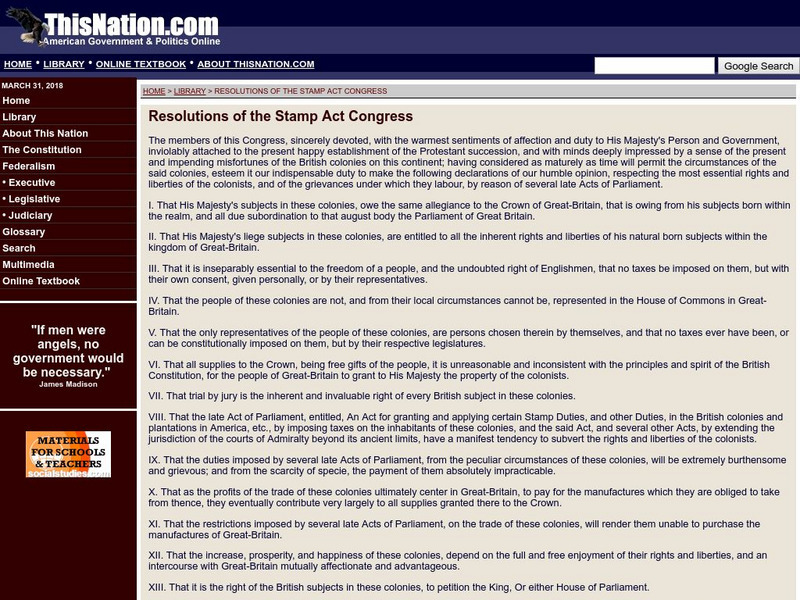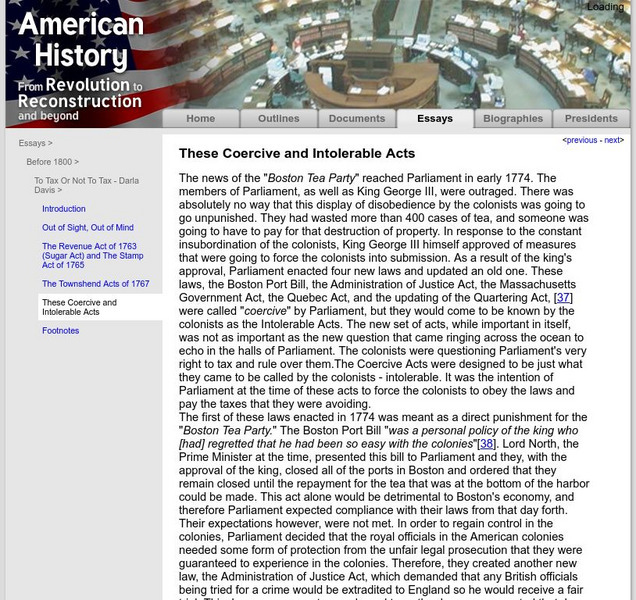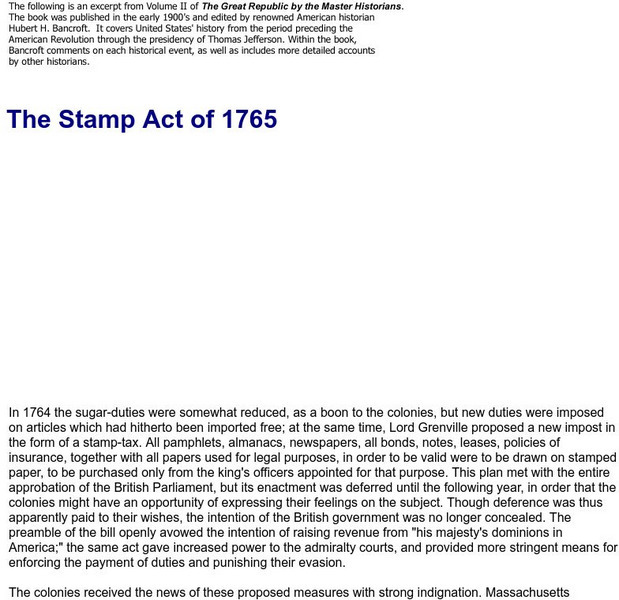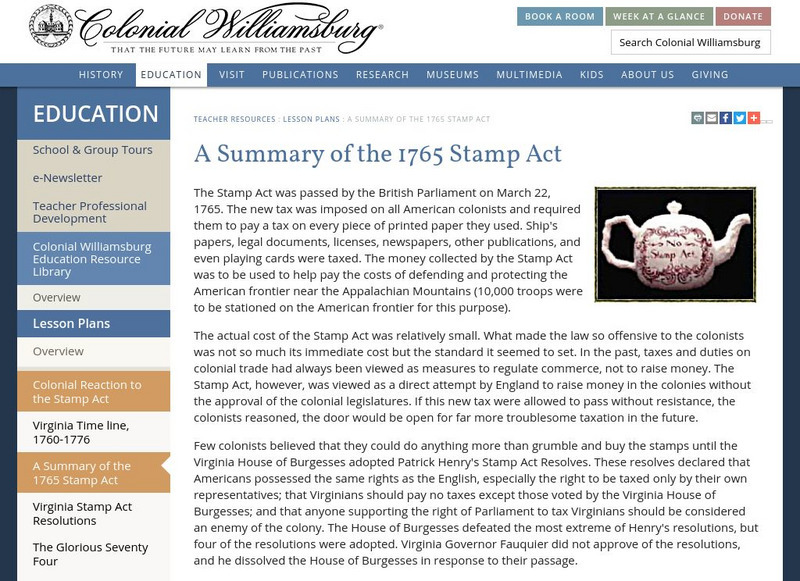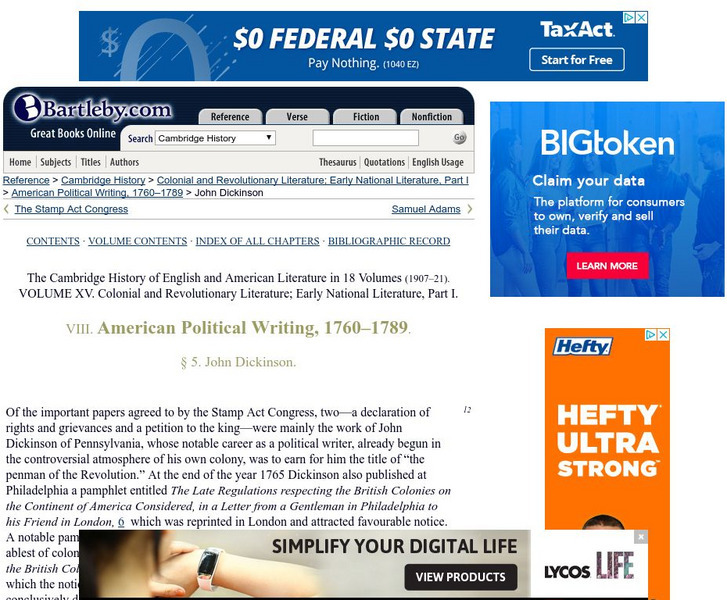Curated OER
We The People: A History
Students play a game about taxation where they have tax collectors that simulate the feelings and reasons that led to the American Revolution. In this taxation lesson plan, students learn about why the people in the colonies were so...
Curated OER
Major Events Leading to the American Revolution
Students explore the causes of the American Revolution. In this taxation without representation lesson, students analyze political cartoons in order to gain an understanding of the efforts of the colonists to resolve conflict with...
Curated OER
American Revolution: Attempting to Resolve Disputes by Communication
Students study conflicts over taxation. In this American Revolution lesson, students research the taxes imposed on the colonists by the British and determine how the colonists attempted to abolish the taxes through non-violent protests....
Massachusetts Historical Society
Mhs: Coming of the American Revolution: Stamp Act
Provides details surrounding the passage of another attempt by the British to tax the American colonies, the Stamp Act. Includes original supporting documents and great teacher resources.
Massachusetts Historical Society
Mhs: Coming of the American Revolution: Sugar Act
Summary of the controversy surrounding Parliament's passage of the Sugar Act in 1764 to raise revenue and the American colonies reaction to it. Supported by original documents.
University of Groningen
American History: Documents: Daniel Dulany on Taxes
Contains original text of Daniel Dulany's arguments against the Parliament's right to tax the colonies for revenue.
Yale University
Yale Law School: Resolutions of the Continental Congress, 1765
Contains the primary text of the resolutions against the Stamp Act sent to King George III.
CPALMS
Florida State University Cpalms: Florida Students: What Led to the Declaration of Independence
This tutorial examines the events that created conflict between the American colonies and Britain and led to war and the Declaration of Independence. A PDF file of the tutorial is available.
National Humanities Center
National Humanities Center: America in Class: Lexington and Concord: Tipping Point of Revolution
Lesson where students examine primary texts from 1775 and 1776 to explore the impact of the Battles of Lexington and Concord on people's attitudes towards the British. Up to that point, protests against the British had not been violent,...
Massachusetts Historical Society
Mhs: Coming of the American Revolution: Townshend Acts
Discover interesting details surrounding the passage of another attempt to tax the American colonies, the Townshend Acts. Includes supporting original documents and many teacher resources.
Independence Hall Association
U.s. History: Account of the Declaration: Jefferson's Story
Thomas Jefferson's account of events leading up to and the actions of the First Continental Congress, including information about the Committees of Correspondence which communicated through Circular Letters.
This Nation
This nation.com: Resolutions of the Stamp Act Congress
This site provides the full text of the resolutions of the Stamp Act Congress.
Bartleby
Bartleby.com: American Political Writing, 1760 1789: The Stamp Act Controversy
This site explains background causes for the British Parliament's passage of the Stamp Act. It also contains arguments against the Stamp Act by famous colonists.
University of Groningen
American History: Essays: The Intolerable Acts
This resource gives a comprehensive account of the Intolerable Acts, why they were passed, colonists' reactions, and particulars surrounding the Massachusetts Government Act and other Coercive Acts with text links and references.
University of Groningen
American History: Outlines: Taxing and Representation
Describes why the colonies objected to being taxed directly by Parliament for revenue. Contains quotes by James Otis and Samuel Adams. Explains the significance of the Stamp Act.
Digital History
Digital History: The Stamp Act and Virtual Representation [Pdf]
This lesson plan is from a unit on events leading to the American revolution. It highlights the Stamp Act, and the British concept of 'virtual representation' where a member of government was believed to represent every citizen, not just...
TED Talks
Ted: Ted Ed: The Story Behind the Boston Tea Party
This short TED talk given by Ben Labaree gives the background of the Boston Tea Party and its eventual ramifications. [3:48]
PublicBookshelf Corporation
Public Bookshelf: The Stamp Act of 1765
A discussion of the causes and effects of the Stamp Act of 1765 in the British Colonies of North America.
Colonial Williamsburg Foundation
Colonial Williamsburg: A Summary of the 1765 Stamp Act
From the Colonial Williamsburg website, a great summary of the crisis caused by the British attempts to enforce the Stamp Act in the American colonies.
Council for Economic Education
Econ Ed Link: Taxation Without Representation?
Check out this informative site to learn more about life in the colonies before the Revolutionary War. Find out why the colonists had issues with "taxation without representation." "You will work independently and in pairs to learn about...
Council for Economic Education
Econ Edlink: Taxation Without Representation?
In this teacher lesson, students will review the series of tax acts that were enacted by the British government and disputed by the 13 colonies of America before the American Revolution. They will discuss the government- provided...
Independence Hall Association
U.s. History: The Townshend Acts
It seems like the British Parliament was just throwing laws at the American colonists just to see what might stick. Read about the Townshend Acts that were passed after the Declaratory Act which was passed after the repeal of the Stamp...
Bartleby
Bartleby.com: John Dickinson's Writings
The site discusses political writings by John Dickinson concerning the British Parliament's right to tax the colonies without representation and against the Stamp Act. Dated 1907-21.
Khan Academy
Khan Academy: Us History: 1754 1800: Unit Test
Take this eleven question unit test over US history during the period of 1754 and 1800.







